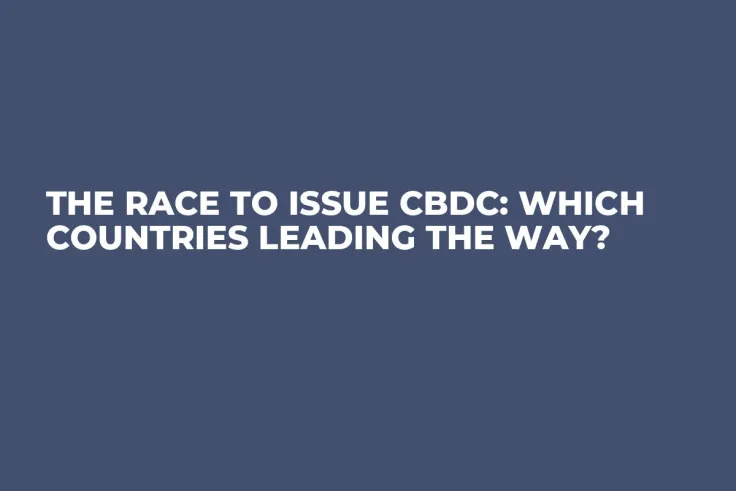
Disclaimer: The opinions expressed by our writers are their own and do not represent the views of U.Today. The financial and market information provided on U.Today is intended for informational purposes only. U.Today is not liable for any financial losses incurred while trading cryptocurrencies. Conduct your own research by contacting financial experts before making any investment decisions. We believe that all content is accurate as of the date of publication, but certain offers mentioned may no longer be available.
The concept of CBDCs -- short for "central bank digital currencies -- has been around since the early days of crypto, and in recent years it has garnered a lot of interest from central banks themselves.
Last year, a study by the U.S.-based think tank Atlantic Council revealed that 130 countries were actively exploring the idea of launching a digital, blockchain-based version of their national currencies, with almost half of them having progressed to the development stage. Fast forward another year, and a handful of countries have already gone ahead and launched their official CBDCs, and there are many more that are not far behind.
The first past the post
A quick glance at this handy CBDC Tracker shows there are four official CBDCs up and running in the world, with the first one launching way back in 2020 when the Bahamas introduced the "Sand Dollar". The government there moved quickly to launch its CBDC, partly in response to the fact that around 20% of its population do not have bank accounts.
Other CBDCs include Nigeria's eNaira, which is used by more than 13 million Nigerians, Jamaica's Jam-Dex digital currency, which launched in July 2022, and the Eastern Caribbean Union's DCash, which debuted in April 2021 in Antigua and Barbuda, Dominica, Grenada, Montserrat, St. Kitts and Nevis, Saint Lucia, and St. Vincent and the Grenadines.
Who might be next?
We're yet to see any major economy launch a CBDC and it's an open question as to which nation might get there first, but there are a number of candidates that have been quite vocal about the progress they're making.
They include Sweden, which is already noted for being an almost totally cashless society, a fact that suggests launching a CBDC should be fairly trivial for that country. Officials there have been testing a CBDC that's unofficially known as the e-Krona for a couple of years already. The proof-of-concept was developed by Sweden's Riskbank way back in 2017, and it's believed that it has overcome most of the technological challenges thanks to its partnership with the IT consulting powerhouse Accenture.
Riskbank still says it's on course to launch the e-Krona some time next year, but progress has reportedly been held up by policy implications and concerns that the CBDC doesn't have an adverse impact on the elderly and people with certain disabilities.
Meanwhile, in the Middle East, Israel is definitely getting closer to the launch of its long-awaited digital Shekel, which is the result of a collaboration between that country's central bank and companies including PayPal, Fireblocks and COTI. The involvement of COTI is interesting, because it's believed that one of the major challenges for CBDCs is the supposed lack of privacy. In a study published in November 2023, the Bank for International Settlements showed there is a direct correlation between CBDC privacy benefits and the willingness of people to use them.
COTI is helping Israel to solve this, providing a confidentiality layer that uses a multi-party computation technique known as Garbled Circuits that ensures full privacy while enabling high volumes of transactions to be processed. The technology even has benefits for the government, as it enables sensitive tax records to be managed securely, and the automated implementation of fiscal policies.
Finally, we must not forget the elephant in the room. China was notably the first major economy in the world to pilot a CBDC when it rolled out the e-CNY, otherwise known as the digital yuan, in 2021.
In a July article, Forbes reported on the progress of the e-CNY. To date, it's available in 29 pilot cities across China, and there are signs it will soon be coming to many more, including Hong Kong. The e-CNY is already being used by over 100 million people and has processed billions of yuan in transactions. Still, there have been plenty of privacy concerns raised about the e-CNY, as the People's Bank of China will be able to know the details of every single user's wallet balances and transaction histories.
 Vladislav Sopov
Vladislav Sopov Dan Burgin
Dan Burgin